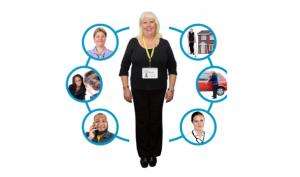Introduction
The idea for this information sheet came from telephone interviews, a survey and in consultation with people with a learning disability. They told us it would be helpful to create a simple information sheet about the role of the social worker that they could give to adults with learning disabilities and their families.
The information sheet comes in two parts, the first is this page which introduces the resource. The second and third pages contain the information sheet which has been developed to share with people and families.
When can this information sheet be used?
It can be shared with a person and/or their family before a visit, during a visit or after a visit from a social worker. It can be used to demonstrate the following areas of the Capabilities Statement in practice:
- Developing relationships with people and families
- Helping people to live the life they choose
- Recognising people’s abilities and strengths
- Promoting rights- based practice
- Pursuing partnership and co-production
- Being accountable
In line with the Practice section of the Capabilities Statement, sharing this type of information with people can help to build trust and positive relationships with adults with learning disabilities and families.
All the information can be adapted to reflect people’s individual circumstances or local arrangements for the provision of social work.
There is an accessible version of the information sheet in Easy Read.
The points included are also reflected in the critical friend Hair feedback tool that has been developed to share with people and families to obtain their views about the service they receive. Watch this video clip below that explains what the hair tool is and how to use it.
What the hair tool is and how to use it.
Feedback gathered from adults with learning disabilities and their families can be used to inform critical reflection and identify learning and development needs and areas for service improvement within organisations.


What social workers do:
- Find out the best way to communicate with you
- Listen to you
- Explain what your rights are
- Support and include you in decisions about your life
- Find out what your interests and strengths are as well as things you like to do
- Support you to do the things you like and enjoy doing
- Believe that people with learning disabilities are skilled at lots of things
- Make it possible to use your life-skills and choose things for themselves
- Help you to speak out and have your voice heard
- Find out how having a learning disability and any other health conditions affect you
- Explain how to get the support you are entitled to
- Work with you to develop a plan of support
- Support you at different stages in your life
- Offer support to families and carers of people with a learning disability
- If you are a parent, support you in your role
- Work with others to improve access to services
- Work to stop abuse.

What social workers don’t do:
- Make a clinical diagnosis of learning disability
- Focus on your diagnosis of learning disability
- Label you or make assumptions about you
- Focus on what you cannot do
- Apply rules about behaviour that are different to other people
- Ignore your past experiences of services
- Ignore abuse
- Make decisions for you
- Listen to everybody else apart from you
- Take away your freedom
- Ignore the views of people important to you
- Tell you what to do.

